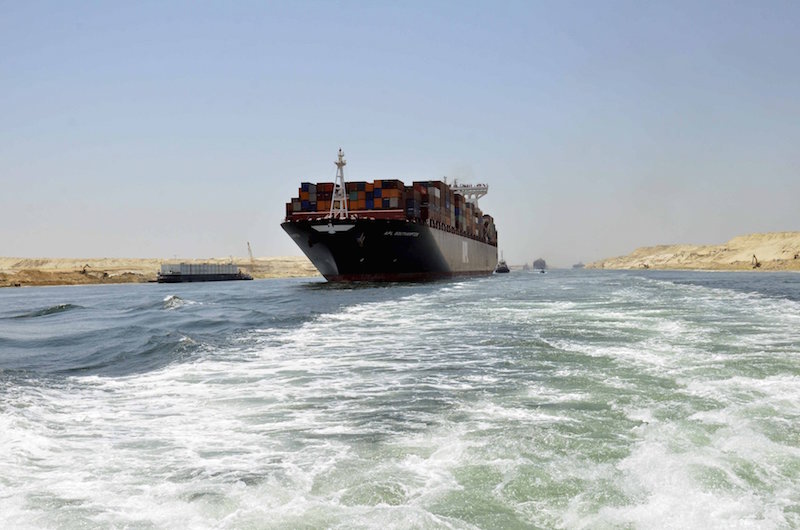A major hard currency crisis in Egypt is causing a massive backlog across the country’s ports, where goods worth $9.5 billion are stuck – even as the government engages in desperate measures to facilitate their release and avoid a spike in the prices of essential commodities.
With Egypt sinking deeper into a prolonged economic crisis, exacerbated by the Russian invasion of Ukraine, the country’s ports have recently been clogging up with goods due to a dollar shortage, a crisis which has been worsened by a substantial nosedive of the Egyptian pound. The currency has depreciated by about 36 percent since the beginning of the year.
Over the period from December 1-23, the government – which has imposed restrictions on imports to save foreign currency – managed to release goods worth $5 billion. Other cargoes worth $9.5 billion are still being held at the country’s ports awaiting the securing of dollars required to release them. Priority is being given to food products, food manufacturing components, medicines and production goods.
“The ports had goods worth about $15-16 billion until the end of November, and we worked with the Central Bank and the banking sector, and we succeeded in releasing $5 billion worth of goods from the beginning of the month until December 23,” said Mostafa Madbouly, Egypt’s prime minister.
The prime minister also ordered the formulation of a plan to release the remaining goods that are clogging the country’s ports, a crisis worsened by import restrictions put in place by the government to conserve foreign currency. The shortage of hard currency needed to operate Egypt’s import-heavy economy has affected supply lines in almost every sector and resulted in a sharp increase in prices.
As a net importer of fuel and food commodities, Egypt is grappling with the worst economic crisis in years. The Russian invasion of Ukraine has caused far-reaching macroeconomic upheavals, including runaway inflation, local currency depreciation and rising interest rates.
Last week, the Central Bank of Egypt raised interest rates for the fourth time by 300 basis points to contain inflation, which hit a five-year high of 21.5 percent in November. The bank’s Monetary Policy Committee raised the overnight deposit rate, overnight lending rate, and the rate of the main operation to 16.25 percent, 17.25 percent and 16.75 percent, respectively.
In mid-October, Egypt secured a $3 billion bailout from the International Monetary Fund to help ease the country’s balance of payments pressures and tackle other macroeconomic imbalances.
Egypt has been one of the biggest innocent casualties of the Russia-Ukraine conflict. The country is a net importer of both fuel and food commodities and depends hugely on tourists from Eastern Europe for forex earnings. Overall, Egypt imports 62 percent of its wheat needs, 82 percent of which come from both Russia and Ukraine. In 2021, Eastern Europe accounted for half of the eight million tourists who visited the country, according to government data.







